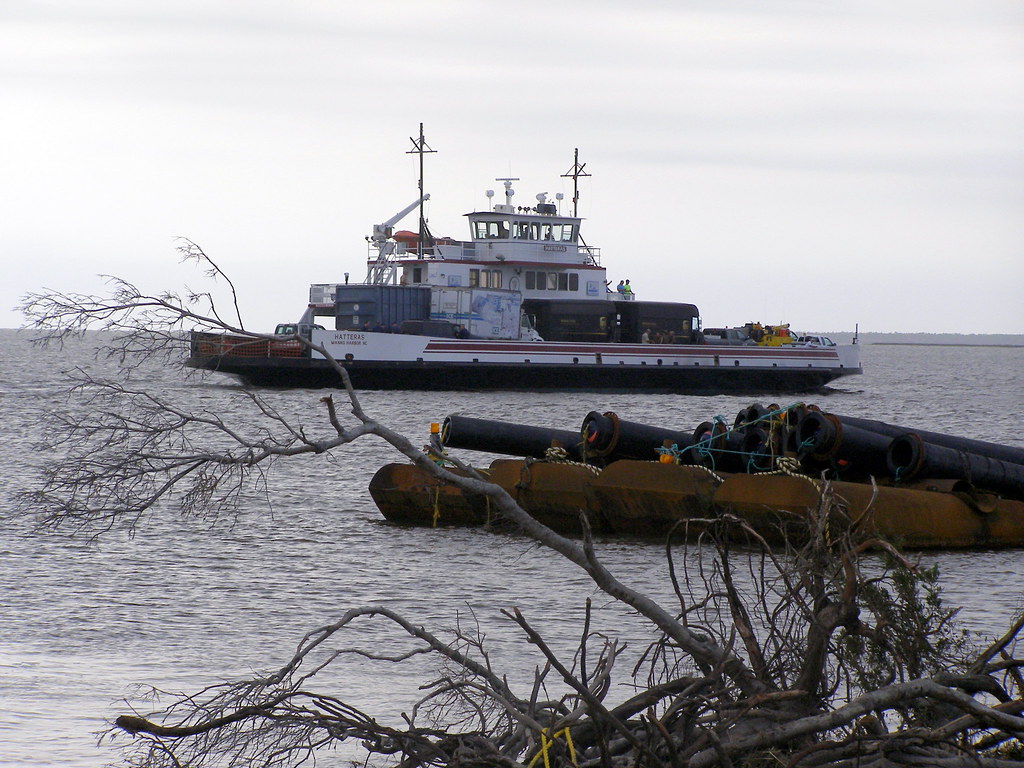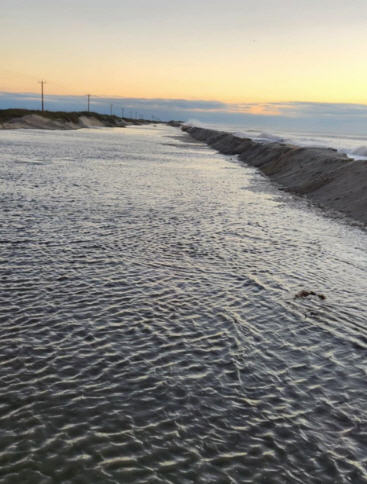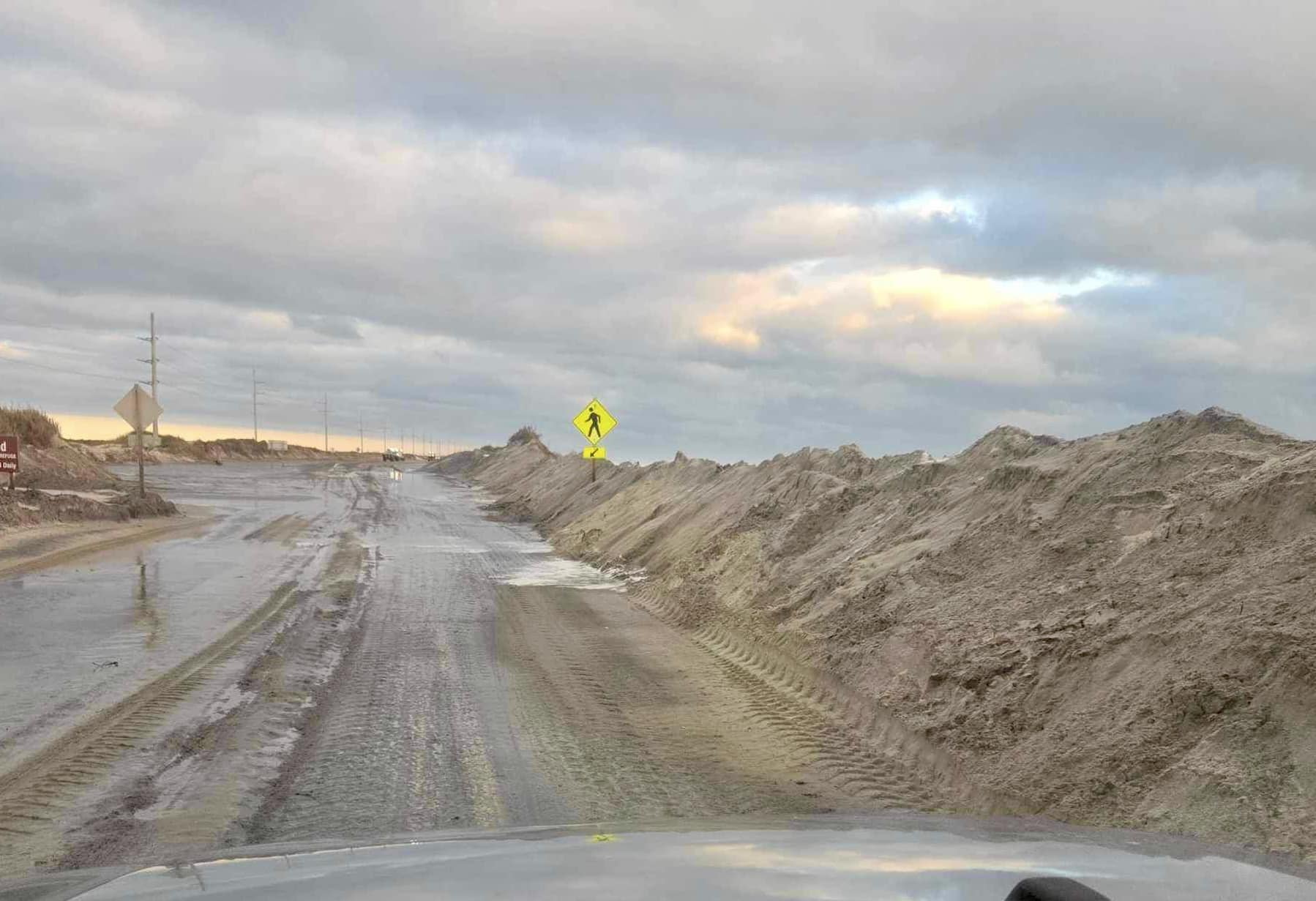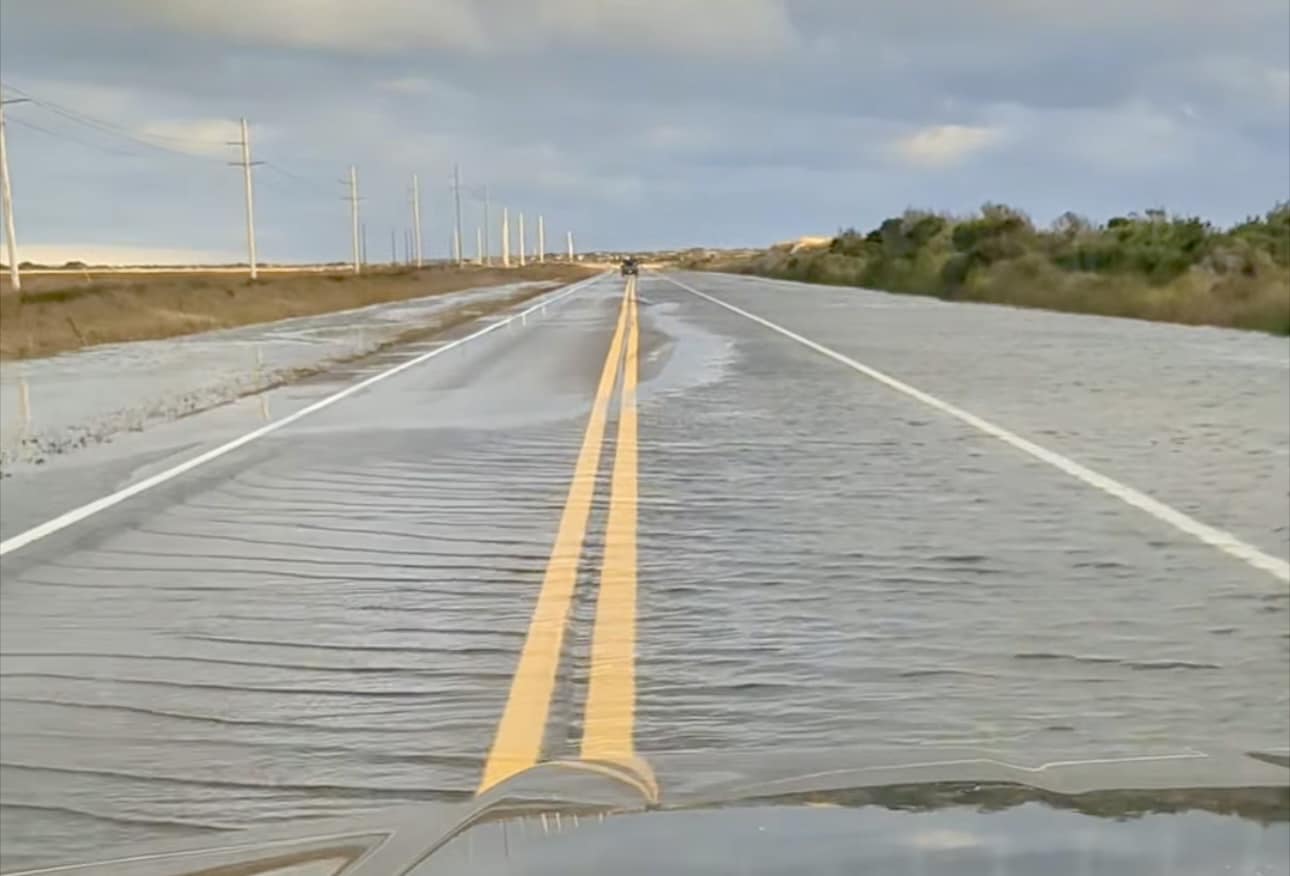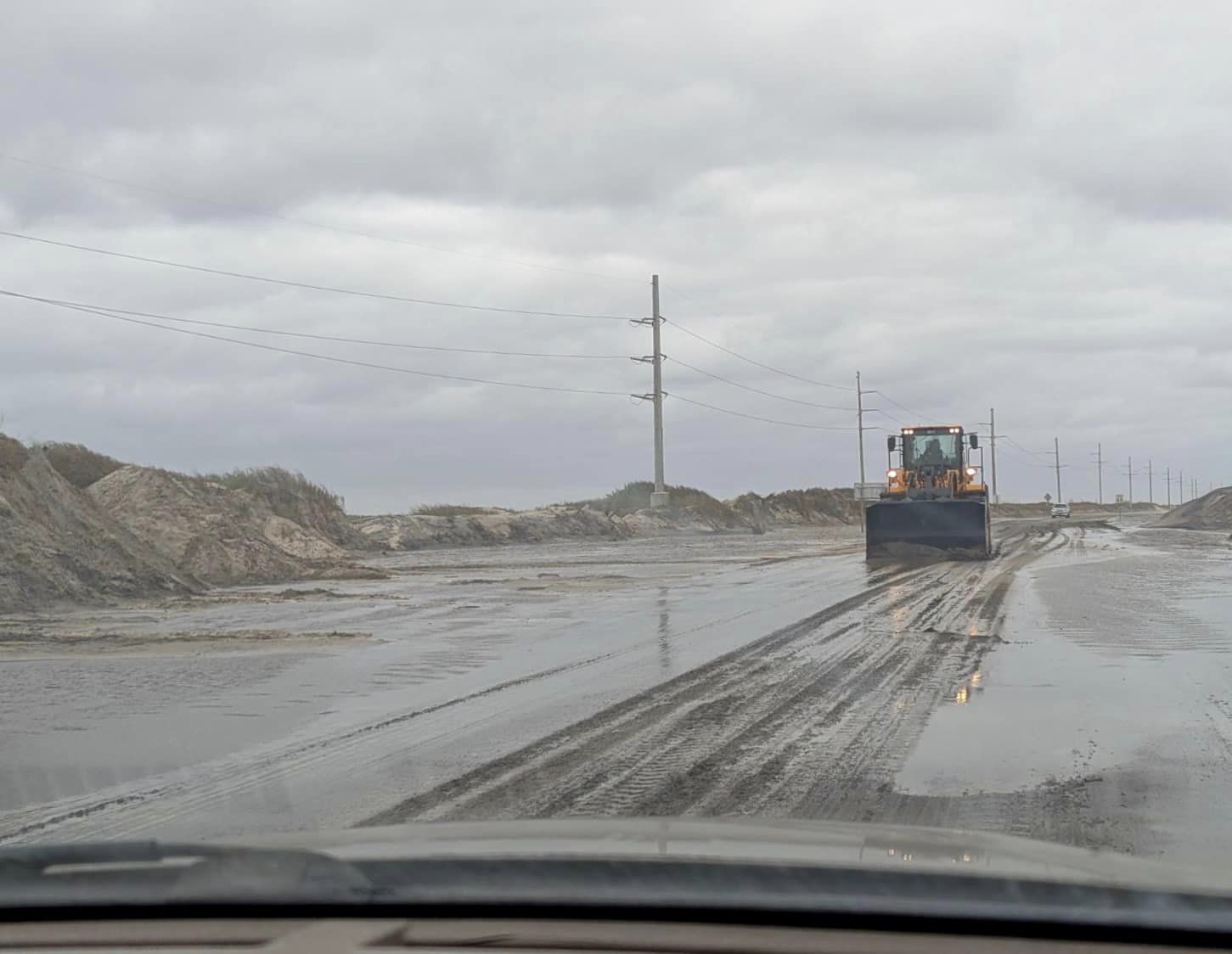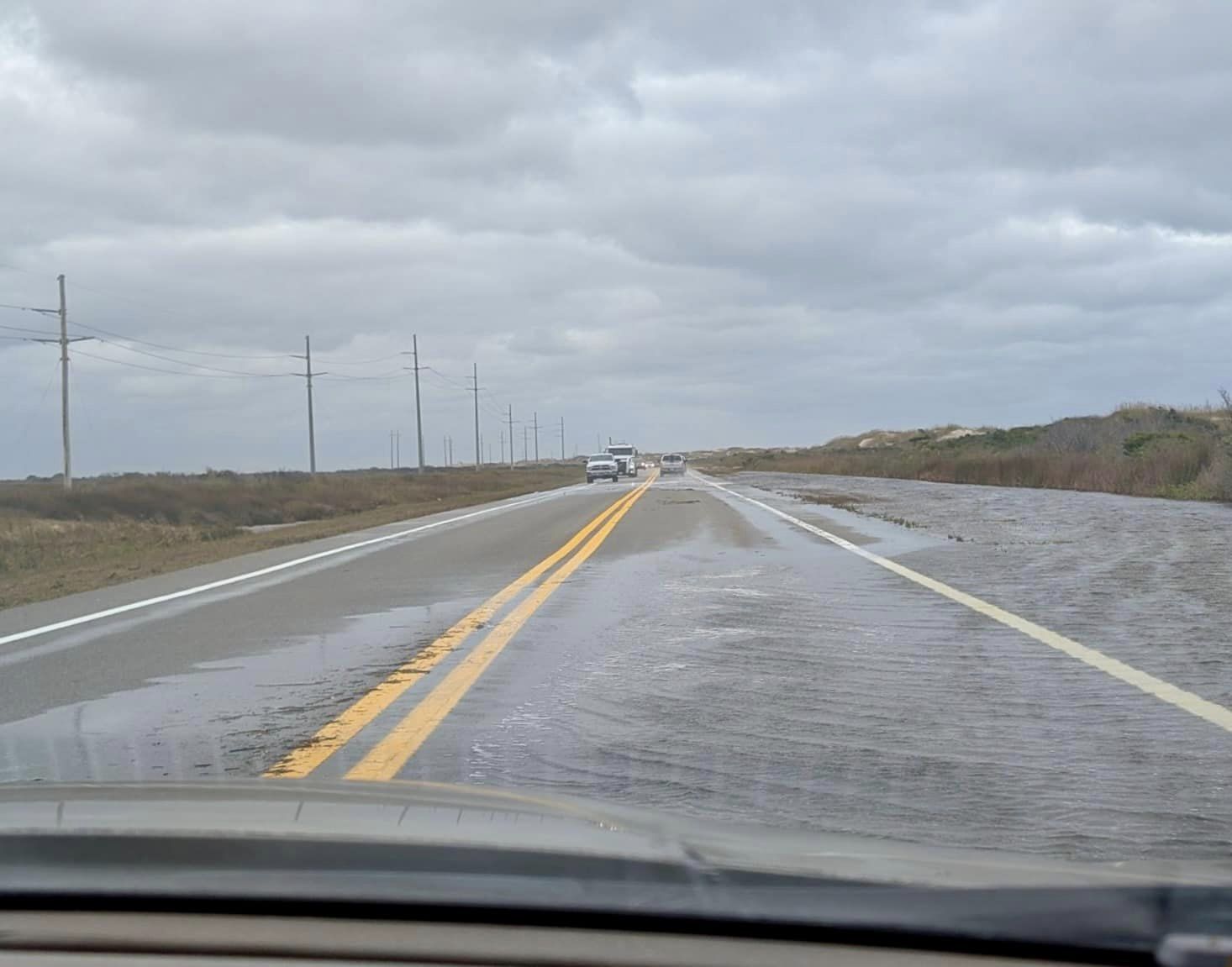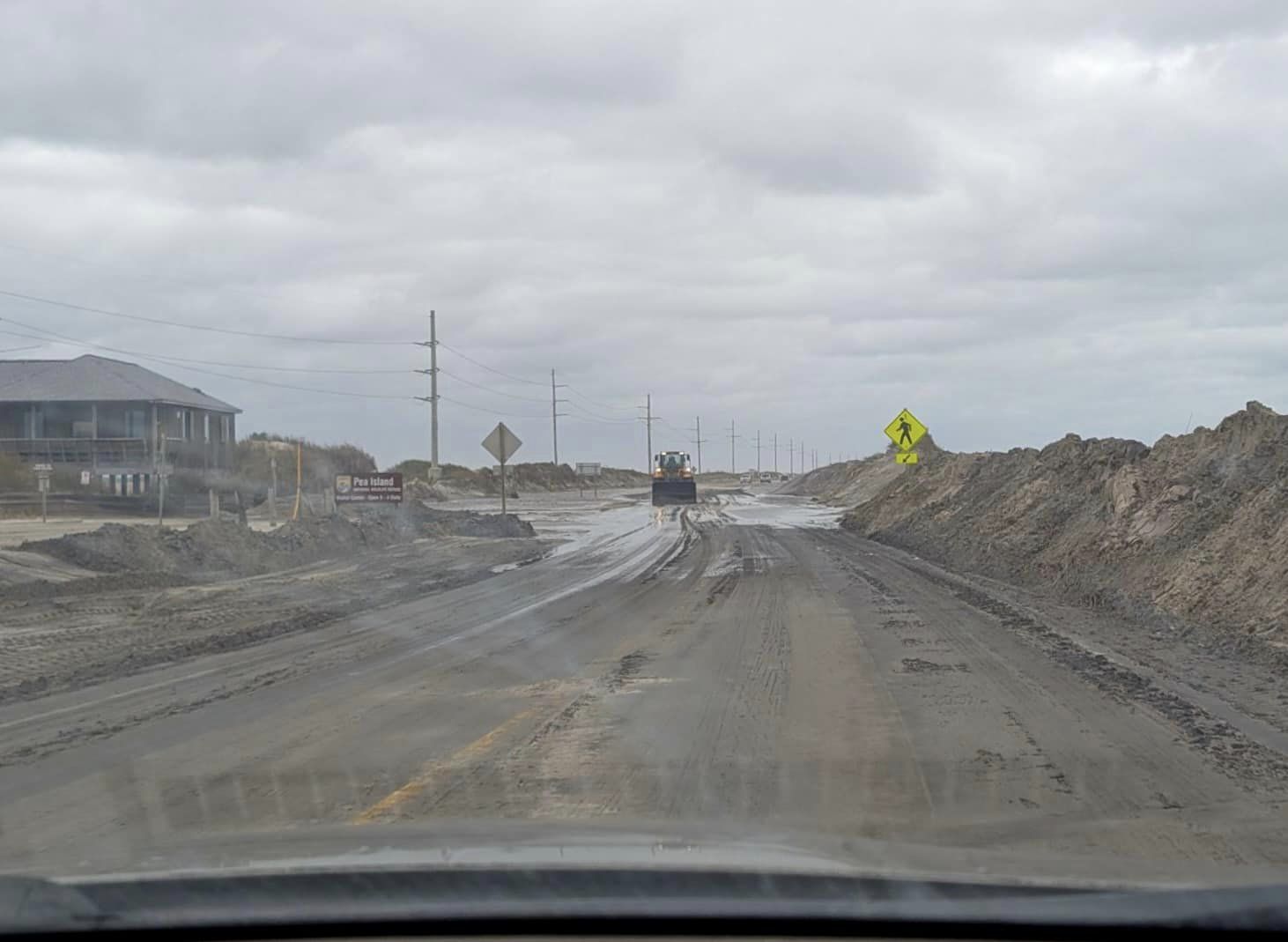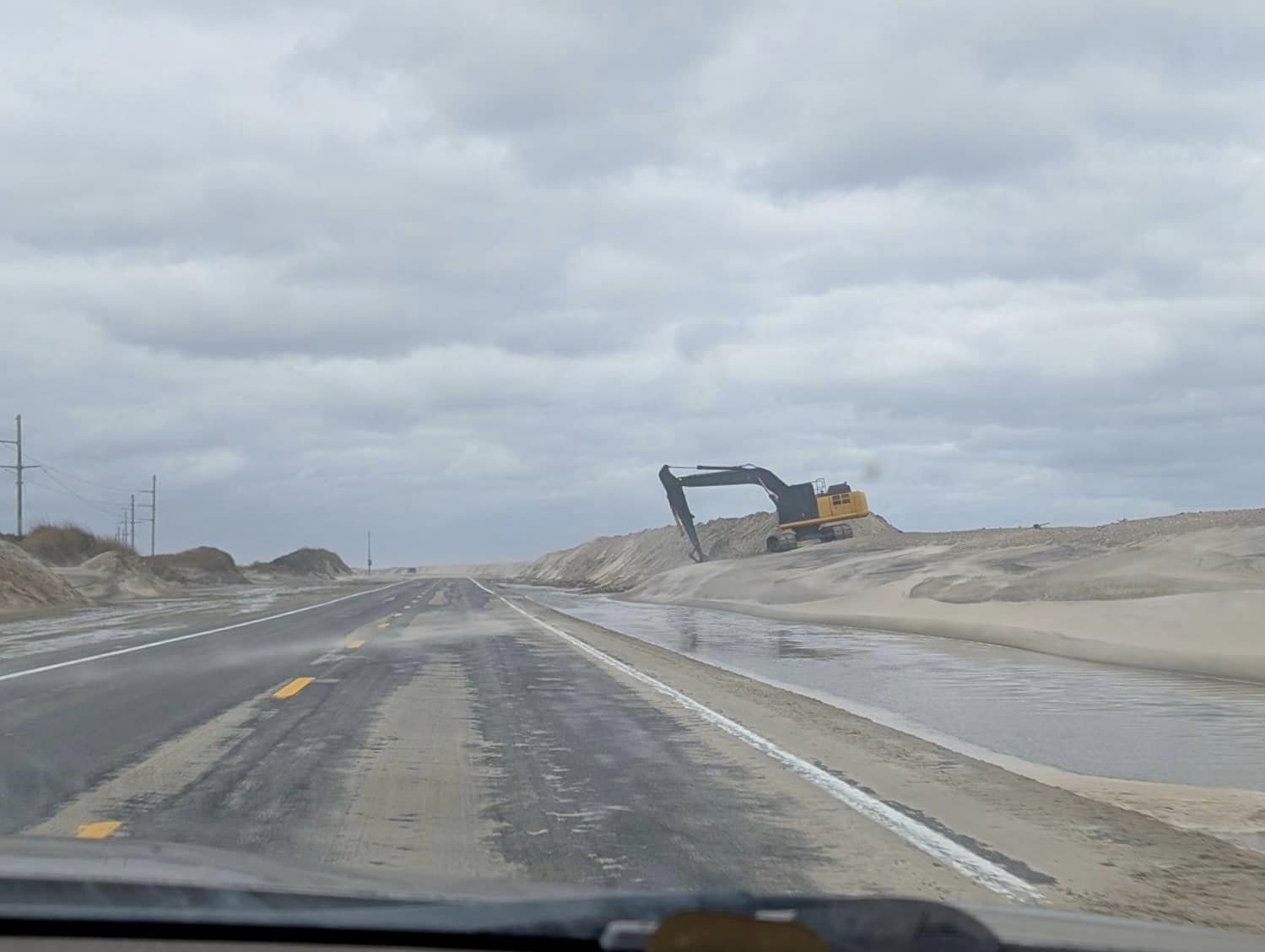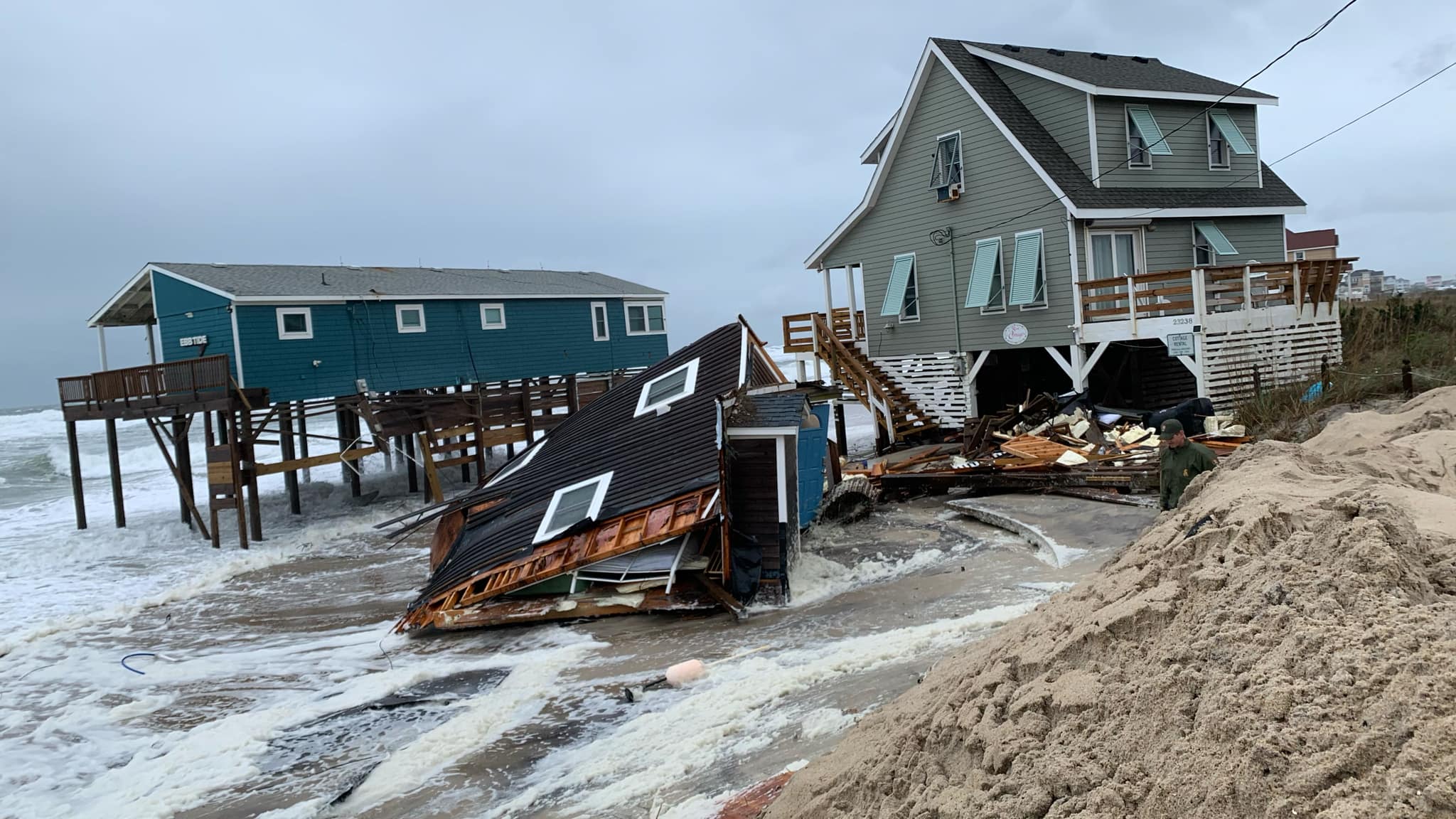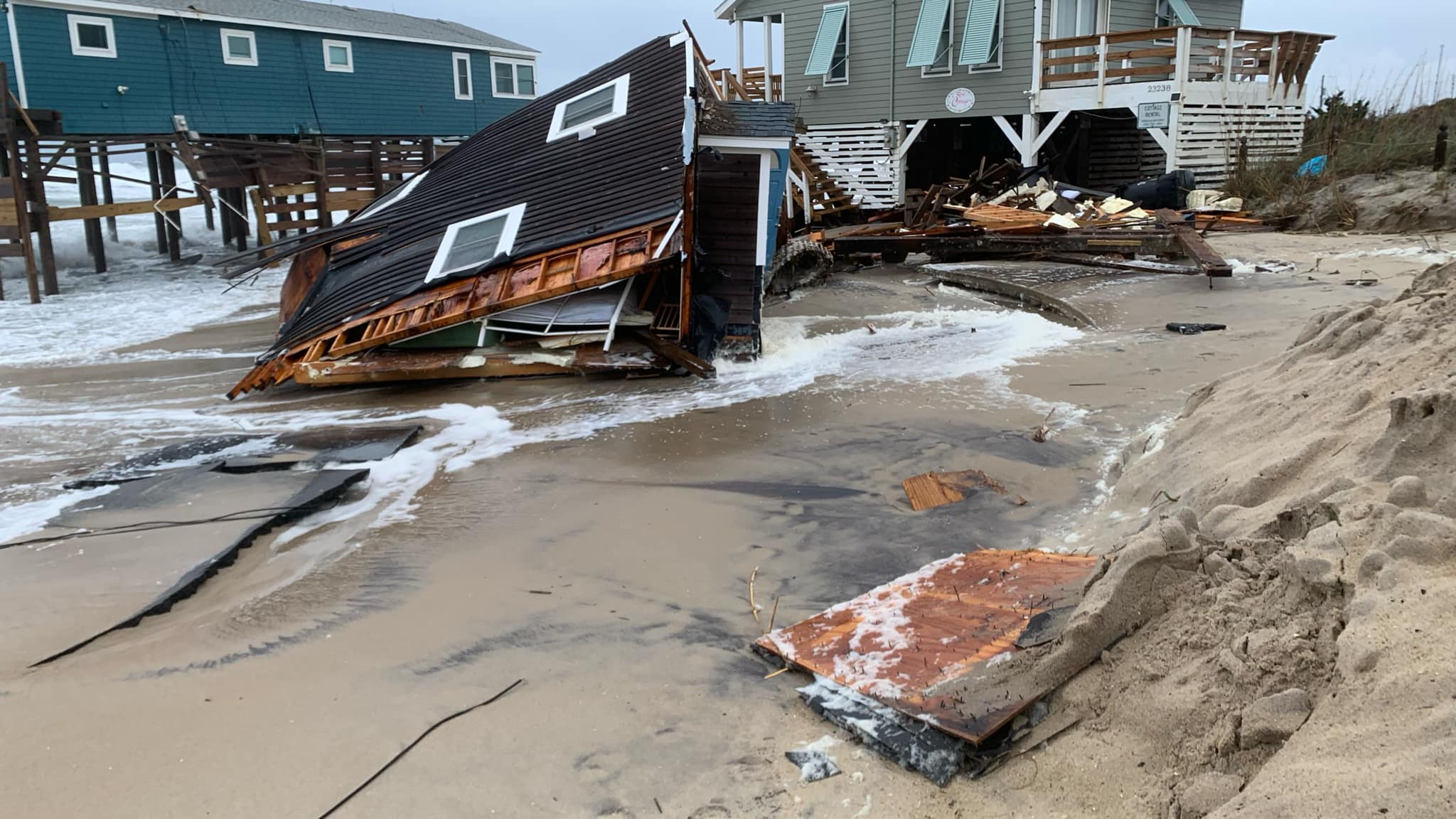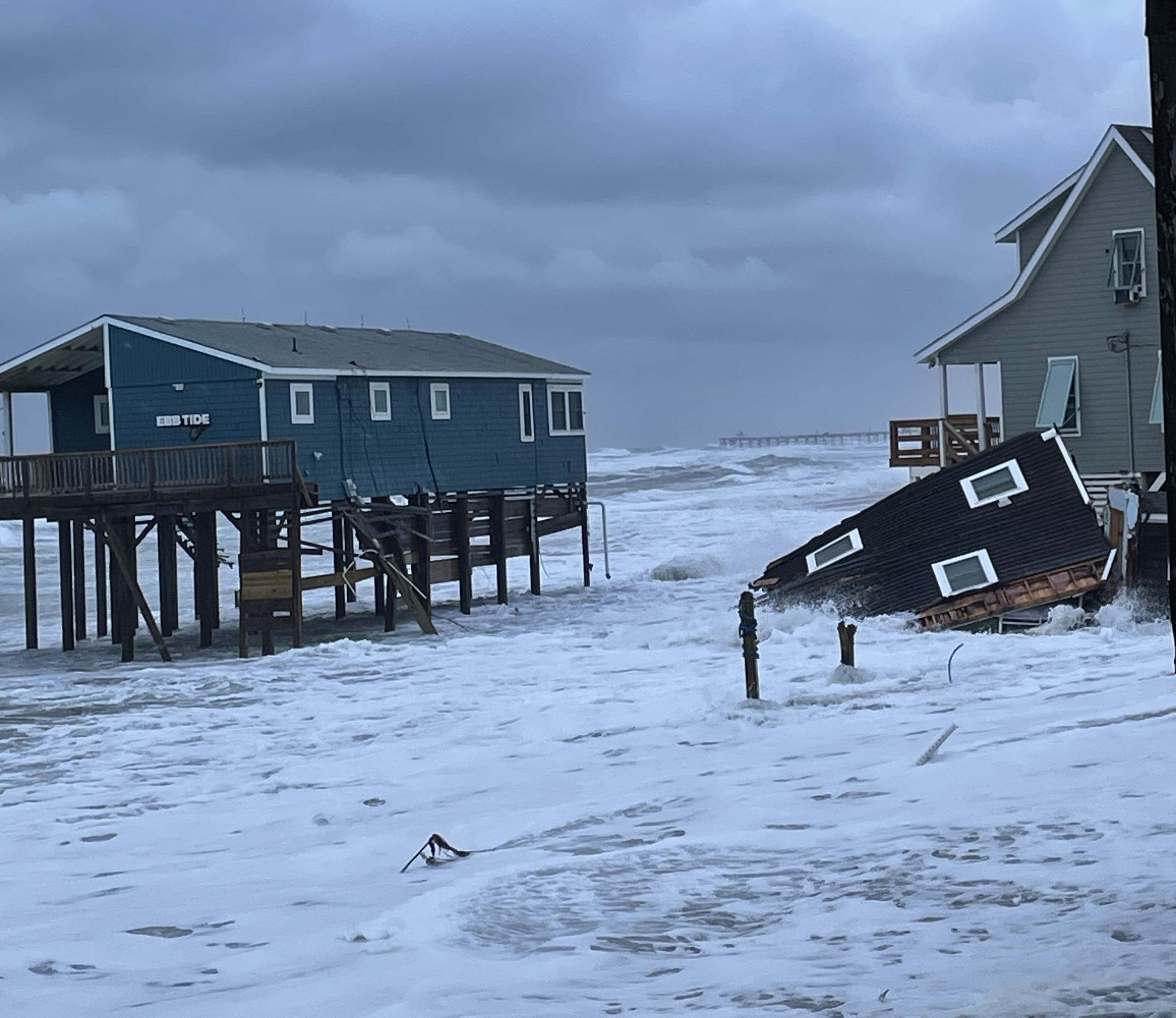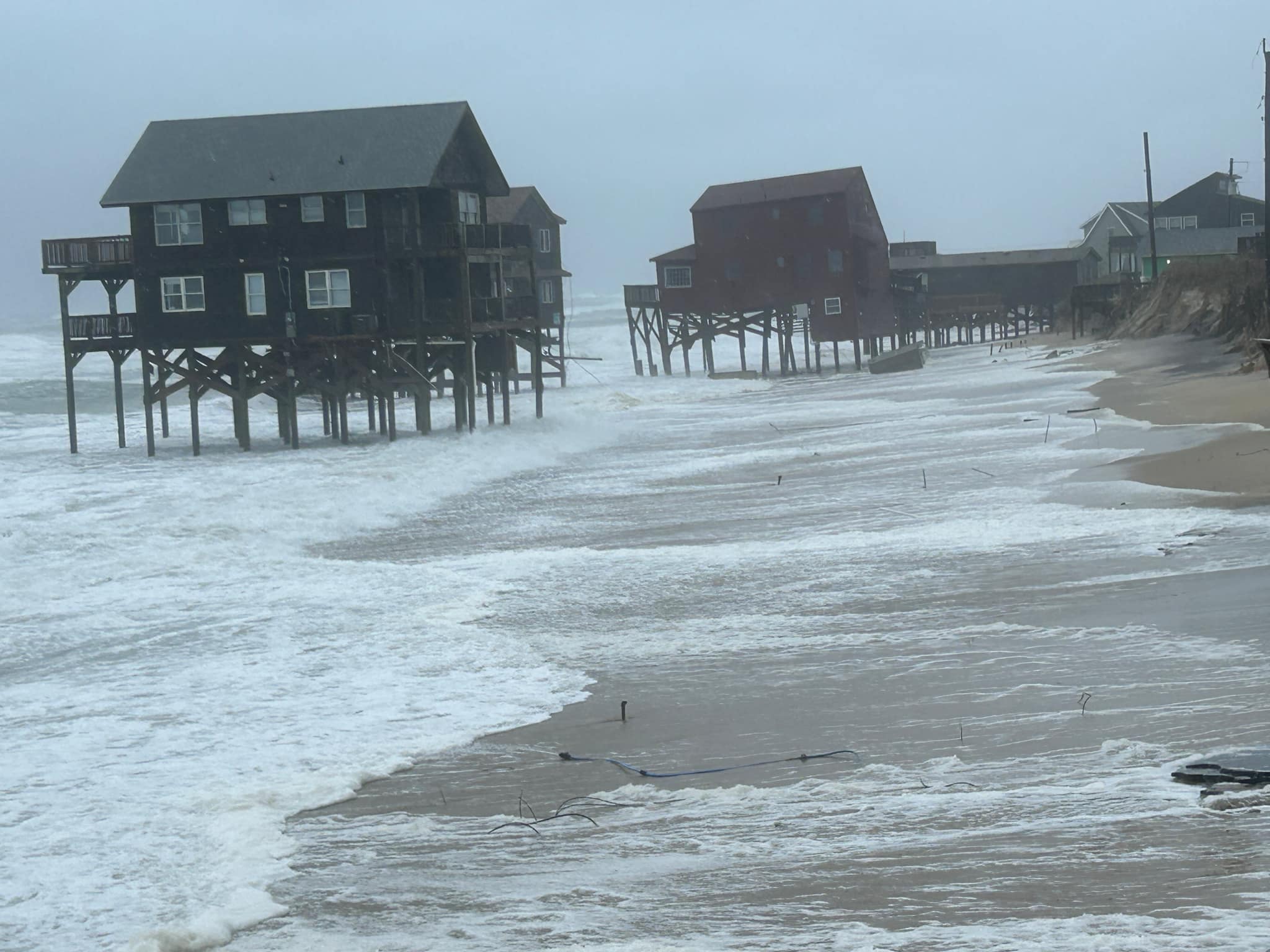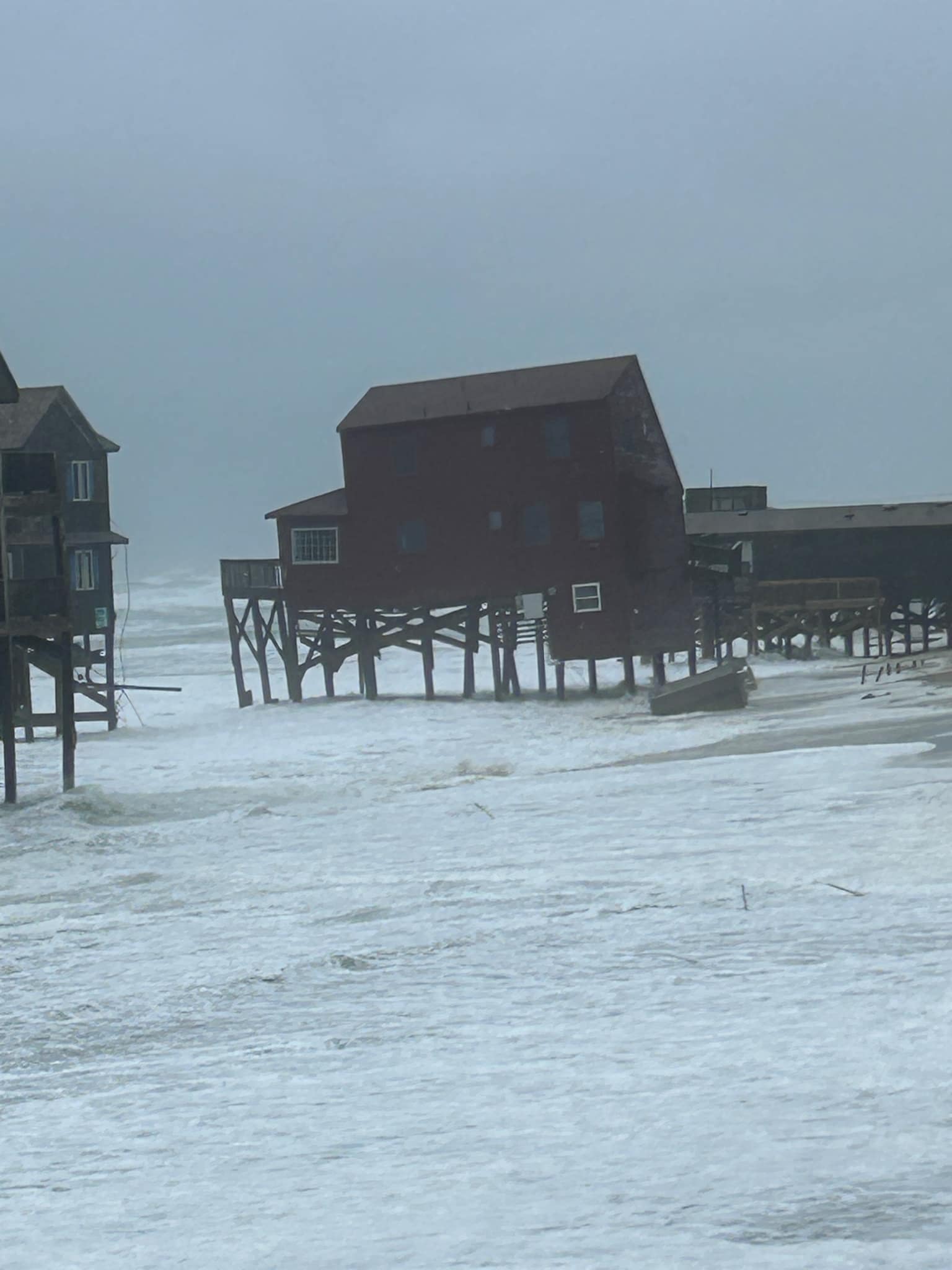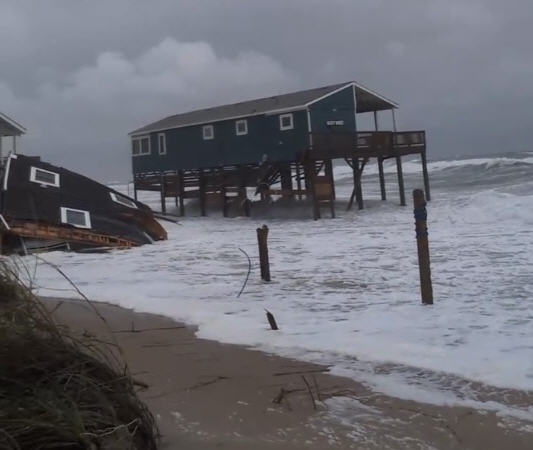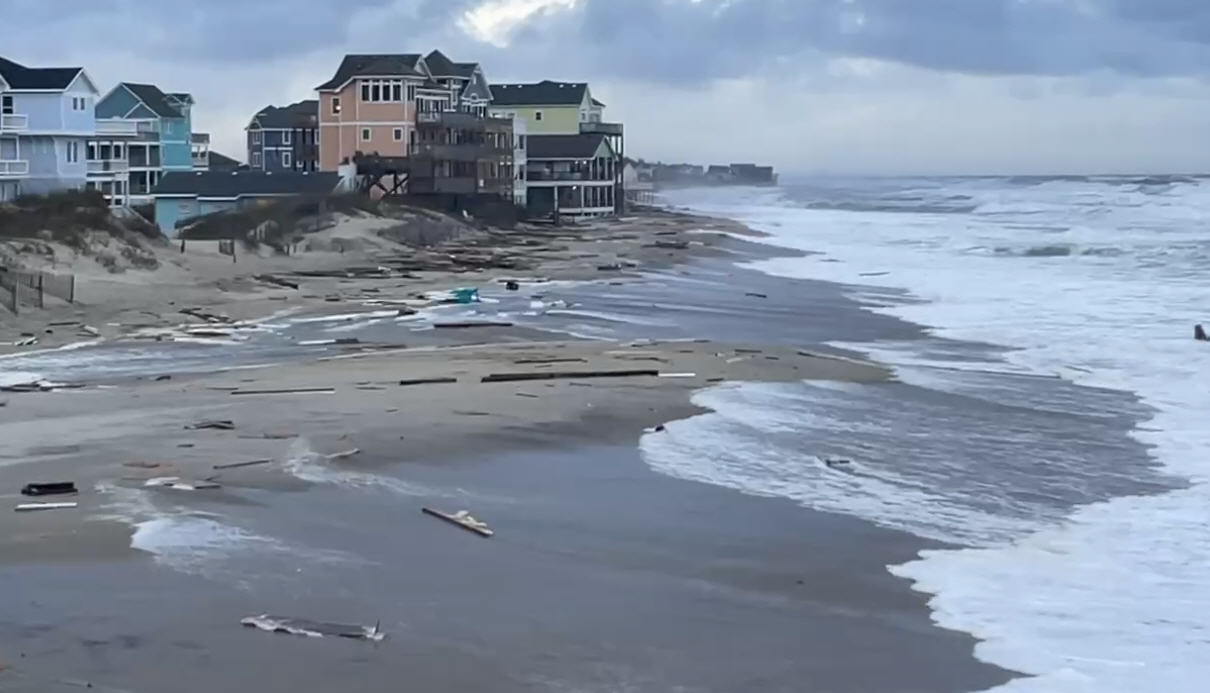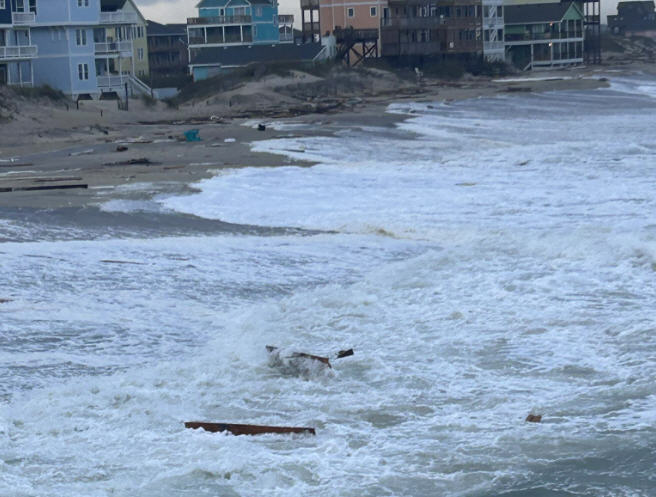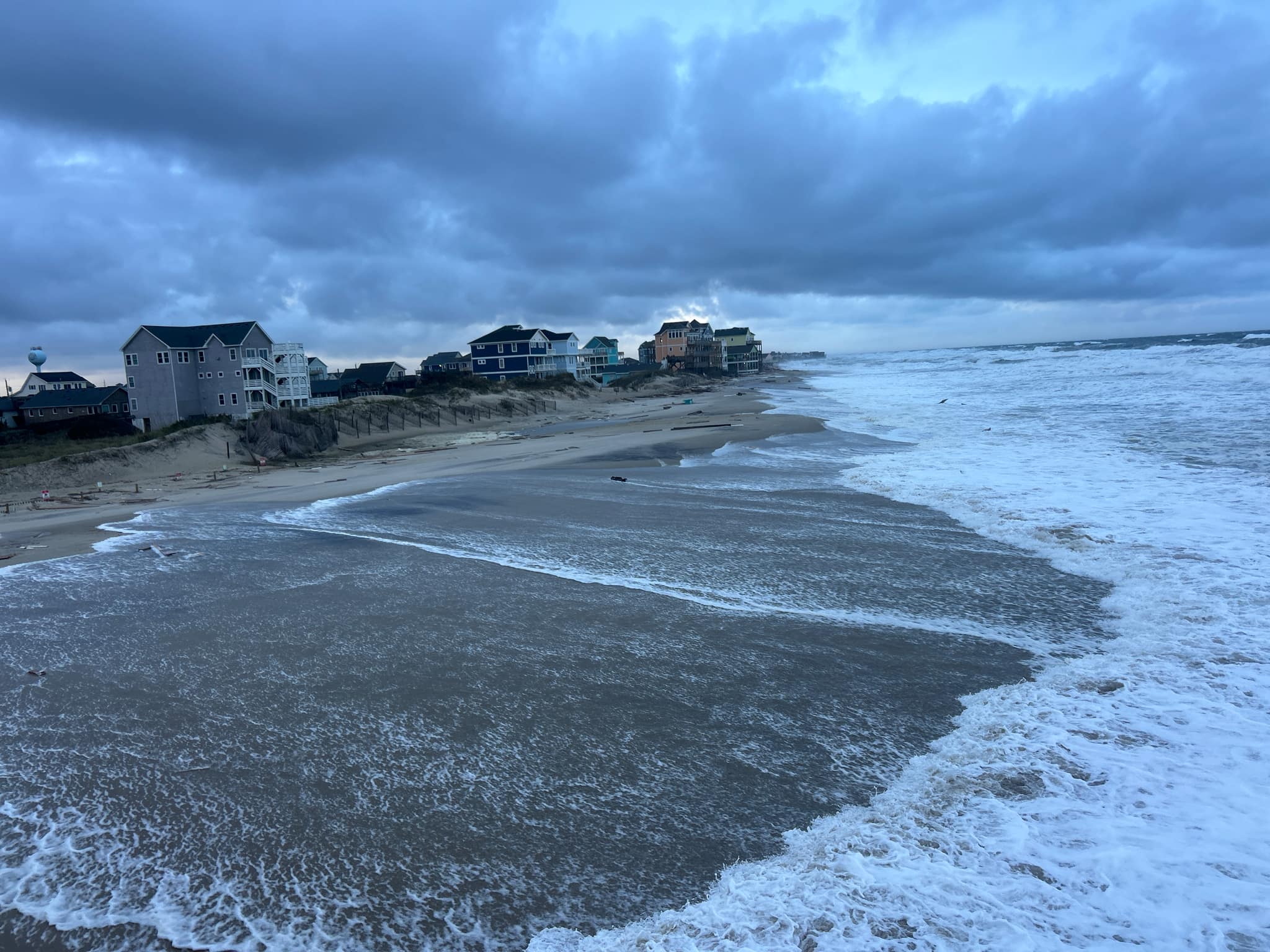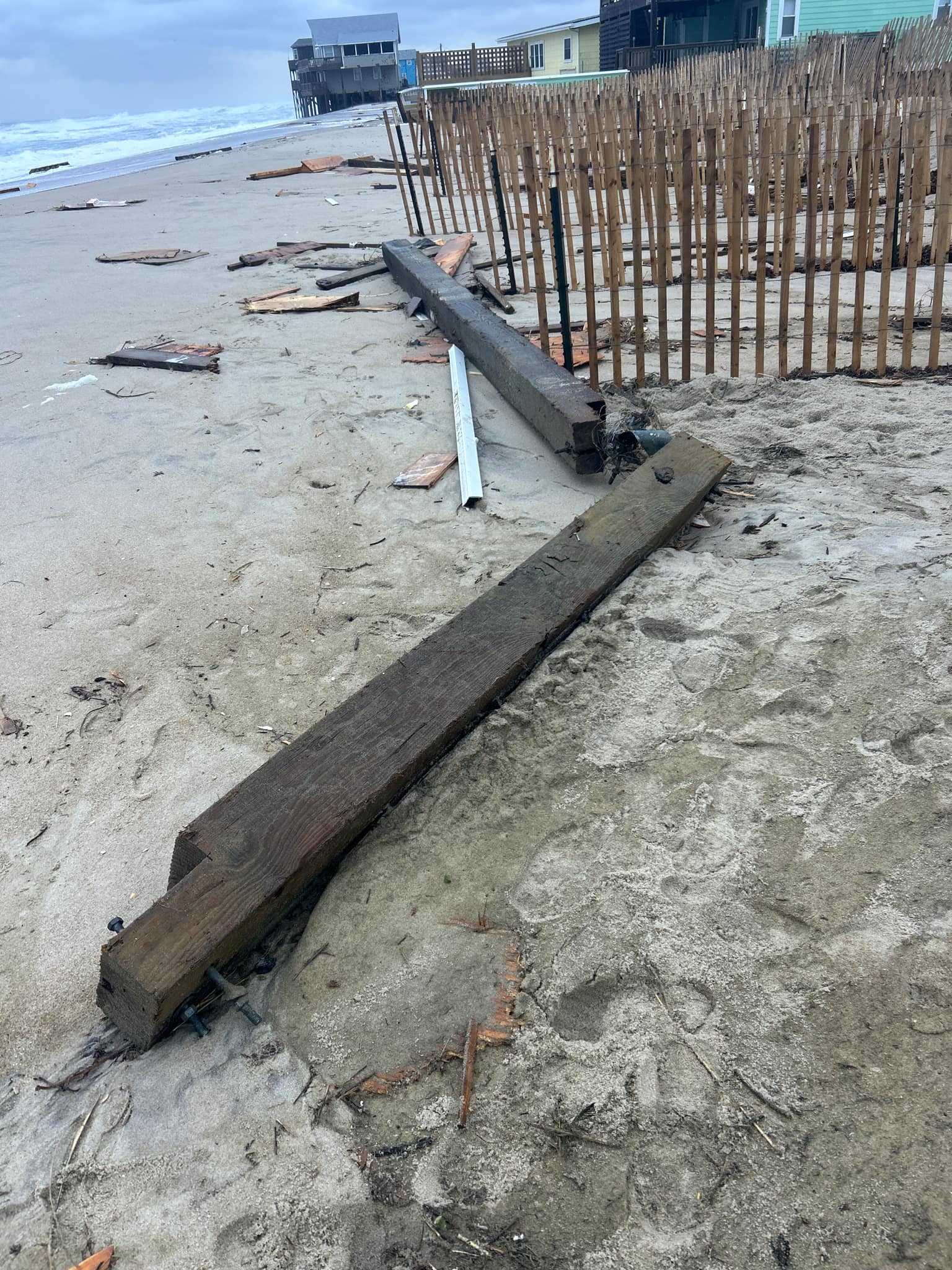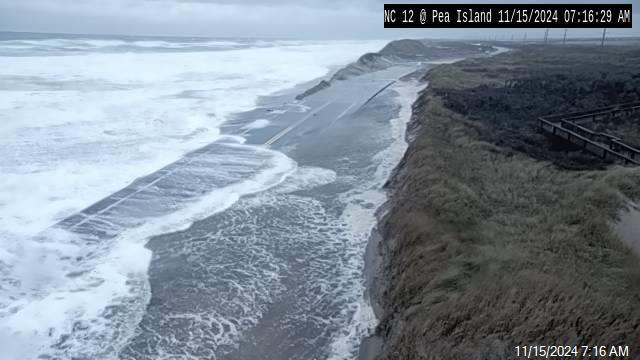BOC discusses school funding, endorses using occupancy tax funds for dredging
In a lengthy meeting yesterday, the Dare County Board of Commissioners heard public comment on its proposed budget for 2016, passed a resolution supporting using occupancy tax money from the beach nourishment fund for dredging Oregon Inlet, and decided not to merge two advisory panels on inlet and waterways issues.
Shortly after the meeting began at 9 a.m., Chairman Bob Woodard announced he was stepping down from the dais onto the floor of the meeting room to address members of the public face-to-face.
He said that his chairman’s remarks were “rather lengthy.”
Among the topics he covered were combining the advisory groups and county funding for the Board of Education.
In an effort to streamline the groups’ work on short- and long-term funding for dredging in county inlets — namely Oregon Inlet — Woodard said the commissioners talked about combining the Oregon Inlet Task Force and the Oregon Inlet and Waterways Commission.
“If I have a bad idea, I will admit it,” he said.
“I was wrong,” the chairman continued. “I though it would work. It’s not going to work.”
The merger idea became controversial when it became apparent that members of the Oregon Inlet Task Force had no intention of expanding their mission to include the county’s other inlet — Hatteras Inlet — which has its own shoaling problems.
Hatteras Islanders pushed back and demanded representation on any merged group. Subsequently, the boards of the advisory panels voted to ask the commissioners to keep them intact and focused on their current missions.
That’s what will happen, Woodard said, noting that the Task Force has agreed to help the Waterways Commission with Hatteras Inlet shoaling problems and also endorsed a separate study of the economic impact of the county’s southern inlet. He added that he was willing to work to get an economic study done, similar to the one that was funded a few years ago by the Tourism Board for Oregon Inlet.
“Lord,” Woodard said to the audience, “don’t send me any more e-mails.”
Next, the chairman talked about another issue facing the board — the Board of Education budget.
Since the proposed county budget for next year was presented at the board’s May 18 meeting, it’s been apparent that the Board of Education is not being funded to the level that many BOE members and others expected.
Before the budget was presented at that meeting, during public comment, Board of Education chairman Ben Sproul told the commissioners that the proposed budget was $514,626 short of what the BOE has proposed. That difference is the cost of a second phase of a state-mandated salary increase for early career teachers.
In a joint meeting of the commissioners and the education board members in March both groups embraced a new funding formula for the schools that had been hammered out in meetings that began last fall.
The Board of Education’s proposed 2016 budget follows that new funding formula. However, the county budget does not.
Outten noted at the May 18 meeting that the commissioners had not formally adopted the new formula and that the second-phase of the state salary increase for early career teachers had not been approved yet by the General Assembly and was, therefore, not in the county’s proposed budget. The salary increase proposal is in the Governor’s and the House of Representatives’ budgets.
Yesterday, Woodard said “not a one” of the commissioners “is opposed to doing whatever it takes….to fund the schools.”
In fairness to several new members of the board, he said, the education budget needed to be “fully vetted.” And he defended the county manager for not including the proposed salary increases in the budget, since the legislation has not passed the General Assembly.
Woodard proposed that the five representatives of the county and five from the Board of Education meet another time to work out what exactly is needed by the schools and then the commissioners meet in another workshop to decide where they can find the funding in an already tight budget — with $3 million pledged to dredging Oregon Inlet.
During public comment on the budget, about a dozen people spoke. All were teachers and/or parents criticizing the commissioners for not fully funding the schools and “supporting teachers.” Several specifically mentioned the “new” funding formula and blasted the commissioners for not honoring it.
The board took a short break after public comment. When they returned to the meeting, Commissioner Warren Judge made a motion to add $500,000 to the county general fund budget. The motion was seconded by Commissioner Allen Burrus.
During discussion, the other commissioners made it clear they support teachers but did not support giving the schools the money in question without more meetings to work out the details.
“Instead of blindly throwing money,” said Commissioner Jack Shea, “we need to get together…and identify issues.”
“I don’t want to pledge the money when we don’t know where it will come from,” said Commissioner Beverly Boswell.
Woodward and Commissioners Wally Overman and Margarette Umphlett agreed.
“Somewhere, we are going to have to get the money,” argued Burrus, noting that the two boards have already been working together for six months.
“We decided to spend the money we have in other places,” he noted.
In the end, the vote was 5-2 in favor of not fully funding the Board of Education budget until the two sides could work together in more meetings.
Also on the agenda was a discussion of Senate Bill 160, sponsored by Sen. Bill Cook, who represents Dare County.
The latest version of the bill includes a section that allows Dare County, beginning July 1, to use up to $3 million in occupancy tax collected for beach nourishment to fund waterways maintenance instead.
The bill has passed the Senate and is now in the House of Representatives. Rep. Paul Tine, who represents Dare, requested that the Board of Commissioners pass a resolution supporting the section of the bill on using the occupancy tax.
Three people at public comment had spoken on the issue and had urged the commissioners to not use the occupancy tax but continue to pursue getting General Assembly approval for a 1/4-cent sales tax increase to pay for inlet dredging.
In one other agenda item of interest to Hatteras Island, the commissioners appointed two new members to the Hatteras Village Community Center Board, also known as the tax board.
A bill to allow the sales tax increase, without a referendum passed in the House but is stalled in the Senate, which apparently does not support it.
Susie Walters of Nags Head told the commissioners that using the occupancy tax earmarked for beach nourishment was “breaking a promise.” She said that instead, the board should strongly lobby Cook to get the sales tax increase passed.
Nags Head Commissioner Rene Cahoon also opposes using the funds from beach nourishment for another purpose.
“I would hope Sen. Cook would respect your board enough to support the 1/4-cent sales tax increase,” she said.
In her remarks, Sandy Semans of Stumpy Point also urged the commissioners to use the occupancy tax beach nourishment funds for their intended purpose.
“For some reason,” she said, “Sen. Cooks seems very resistant to the sales tax increase.”
When the board got to the agenda item on the resolution, there was no discussion of whatever had happened to the sales tax.
After some discussion of other issues related to using the tax, the board voted unanimously to pass the resolution.
Click here to read the resolution.
In one other agenda item of interest to Hatteras Island, the commissioners appointed two new members to the Hatteras Village Community Center Board, also known as the tax board.
Three members had terms expiring — Ernie Foster, Geraldine Farrow, and Ricki Shepherd. Two villagers — George Banks and Dennis Robinson — had applied for positions on the board.
The commissioners voted unanimously to reappoint Shepherd and appoint both Banks and Robinson.




